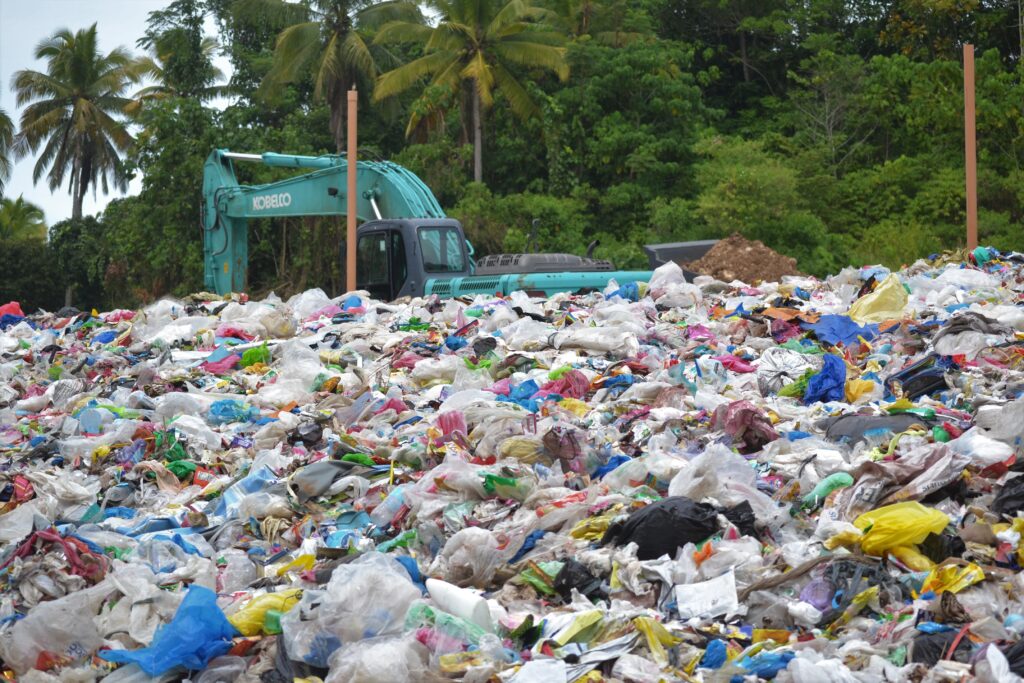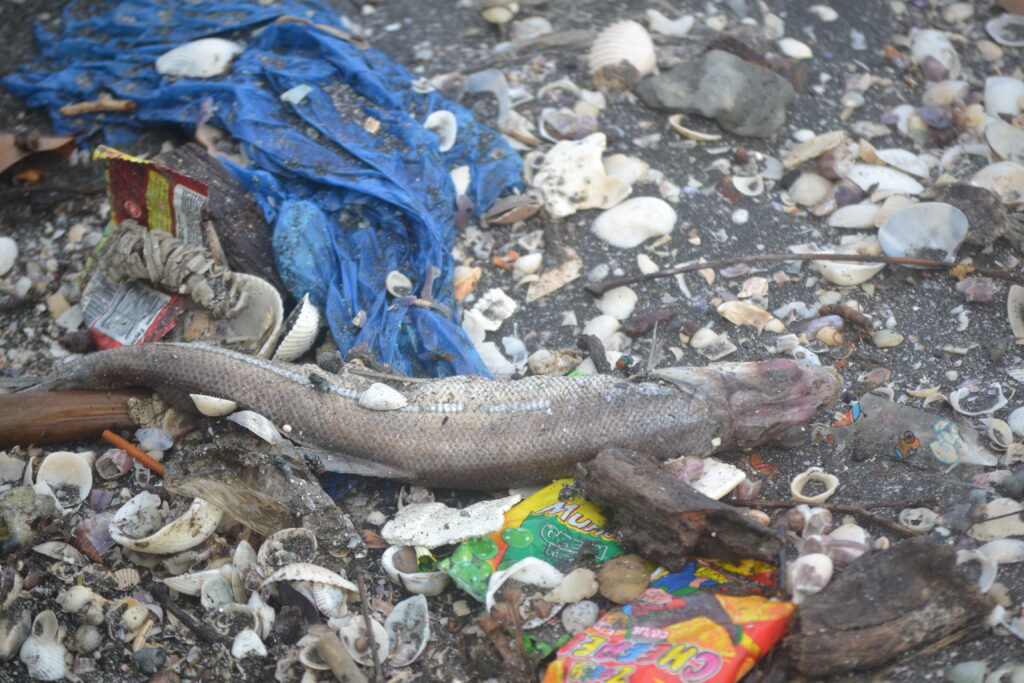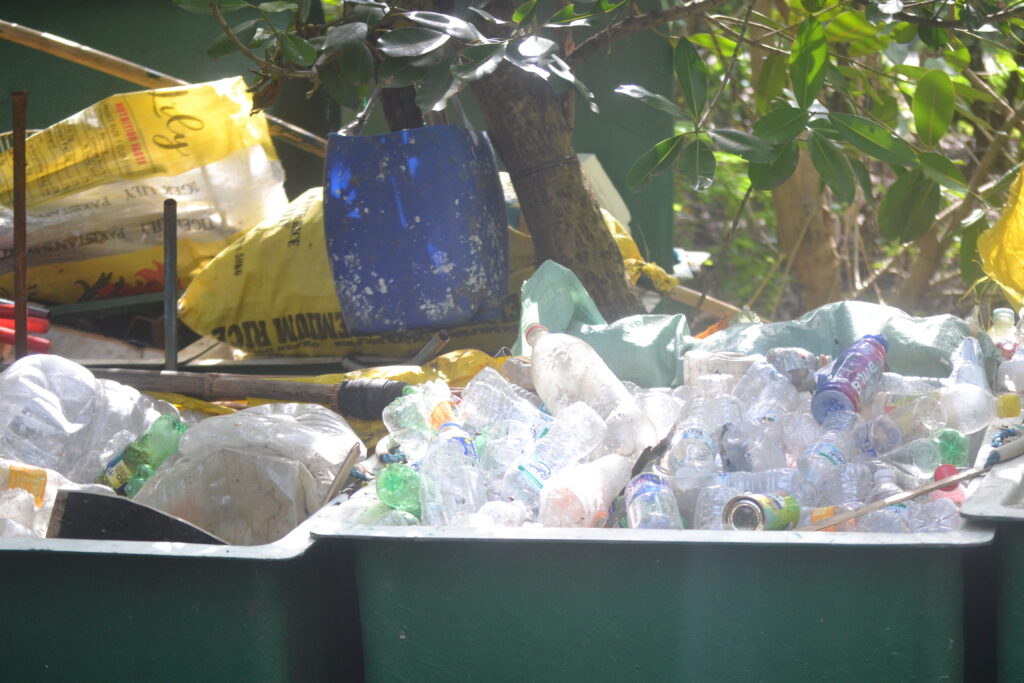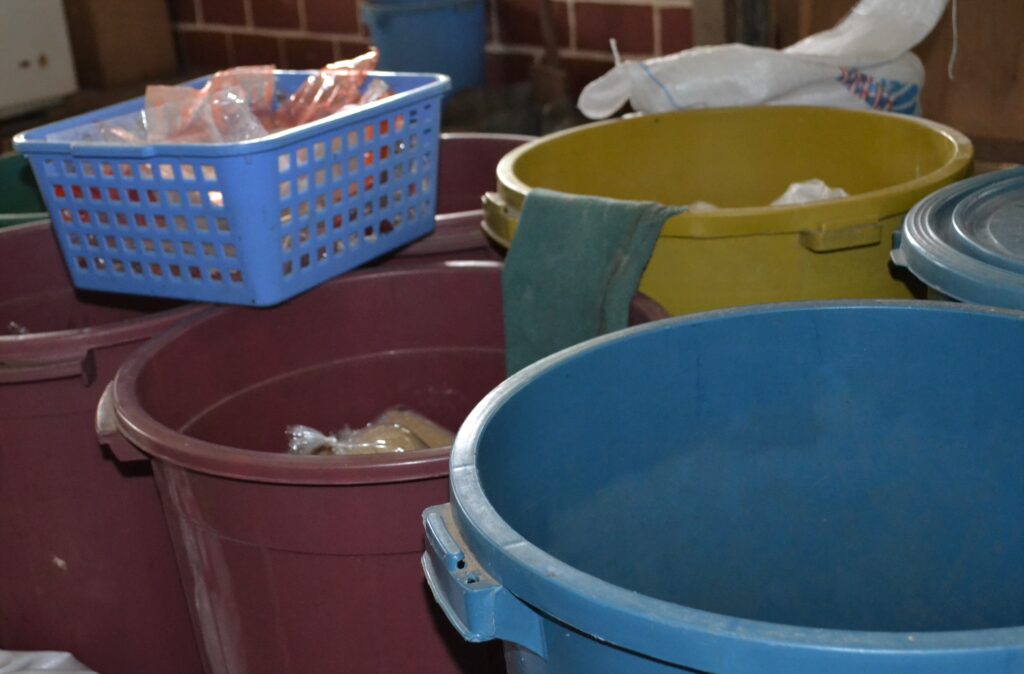Text and Photos by Henrylito D. Tacio
House Bill 9147 seeks to regulate the production, importation, sale, distribution, provision, use, recovery, collection, recycling, and disposal of single-use plastic (SUP) products.
Last July 28, the Single-use Plastic Products Regulation Act was approved by the lower house with 190 affirmative votes, zero negative votes, and one abstention.
Speaker Lord Allan Velasco, a principal author, was very pleased with the outcome. The measure, he said, aims to protect life, both land, and water, from hazards posed by plastic pollution and to ensure that non-compostable SUP products do not leak into nature.
“The measure also provides steps for the eventual phasing of single-use plastic products, a step that is from all accounts, one in the right direction,” Velasco pointed out.
World Wide Fund for Nature (WWF) the Philippines lauded the House of Representatives for the passing of the bill on its third reading.
“The passage of HB 9147 is a step in the right direction,” said Ina Guingona, WWF’s No Plastics in Nature’s Policy Officer. “Plastic pollution has been a scourge to our environment and our communities. A more integrative approach that is grounded and solutions-focused is needed to address the multifaceted issue of plastic pollution. The passage of this bill signifies the Philippines’ commitment to tackling the problem in a holistic manner.”

Sanitary landfill 
Dead Fish and Plastics
Unnecessary SUP materials, including plates, saucers, cups, bowls, lids, cutlery like spoons, forks, knives, and chopsticks, will be phased out with medical exemptions within four years from the effectivity of this Act.
Other materials such as drinking straws, stirrers, sticks for candy, balloons, cotton buds, buntings, confetti, and packaging bags of less than ten microns will be phased out one year from the effectivity of the Act.
“Thereafter, the production, importation, sale, distribution, provision or use of the said plastic products shall be prohibited,” the WWF-Philippines said in a statement. “Properly labelled flexible disposable plastic drinking straws for persons with special medical conditions shall be allowed, when no suitable reusable or compostable alternatives are available.”
The pollution watchdog EcoWaste Coalition has also lauded the passing of the bill.
“We welcome the timely passage of House Bill 9147 and we now challenge our Senators to act and pass a stronger national single-use plastic regulation. The Senate version should promote genuine solutions to curb plastic production and consumption and should not promote dirty solutions such as incineration and thermal treatment,” said Coleen Salamat, Plastic Solutions Campaigner of EcoWaste Coalition.
In a press statement, EcoWaste said that similar bills on the regulation of SUPs have been filed in the Senate since 2019 but, so far, none of the bills have moved beyond the Committee level.
Data from the Environmental Management Bureau of the Department of Environment and Natural Resources (DENR) showed that in 2020 that four hundred and eighty-eight (488) local government units have ordinances banning single-use plastics.
“With this, the stand of the local government against plastic pollution is evident,” EcoWaste said.
“We only have a few weeks left in the legislative calendar and with the 2022 national elections fast approaching, we believe that now is the right time to pass the national regulation on single-use plastics. Our environment and communities cannot afford to go back to start with this bill in the new Congress,” Salamat said.
Meanwhile, a WWF report launched in October 2020 showed the challenges for waste management in the country. More than 2 million tons of plastic waste, 15.43 kg per capita per year, is generated annually in the country, 760,000 tons or 35% are leaked to the open environment while 706,000 tons or 33% go to landfills and dumpsites while only 9% is recycled.

Recyclable plastics 
Plastic pails
“We hope the positive momentum brought by the passage of this bill will continue through the Senate and eventually, to the Office of the President,” said Czarina Contantino-Panopio, WWF’s No Plastics in Nature’s National Lead. “Our work is cut out for us, from the need to eliminate unnecessary plastics, redesigning the way we consume things, to implementing waste reduction and management as mandated by RA 9003 or the Ecological Solid Waste Management Act, there is clearly so much work to be done to address the plastic pollution problem in the country.”
“Plastics are a clear and present danger to the future of our planet,” says Céline Cousteau, TreadRight Ambassador.
In the Philippines, the so-called “sachet economy” has contributed to the proliferation of plastics. Products sold in single-use sachets include instant coffee, shampoo, soy sauce, cooking oil, food seasoning, and toothpaste. Name it, there’s a sachet for it!
“Because they are easy to sell – ribbons of single-use products hang from neighbourhood stores even in the most remote communities – large multinational manufacturing companies continue to market them,” WWF observes.
According to one research group, the Philippines discards 60 billion plastic sachets each year. That’s about one sachet per person per day on a per capita basis.
“The problem with plastics has been escalating for decades, and the Philippines has been identified as the world’s third largest contributor of plastics in the ocean,” WWF said. “Plastic pollution has always been a huge issue in the Philippines with the continuous generation of plastic wastes and poor waste management.”
About 35,800 tons of garbage, which include plastics, are generated each day by Filipinos, according to a position paper written by Alicia Castillo and Suchiro Otoma. “On average, each person in the country produces about 0.5 kilogram and 0.3 kilogram of garbage every day in the urban and rural areas, respectively.”
Another report – from the National Solid Waste Management Commission and the World Bank – said 2.27 million tons of garbage are collected every year out of the 2.7 million tons produced. “Of this, 386,000 tons are still leaked into the ocean,” the report said.
“An absence of garbage collection services in secondary cities and many of the country’s smaller islands is largely to blame for the overwhelming amount of plastic coming from the country,” Froilan Grate, executive director of the Philippine branch of the Global Alliance for Incinerator Alternatives, was quoted as saying by South China Morning Post.
A news report said single-use plastics for food and cosmetics are one of the main contributors to plastic waste in landfills and in oceans. Around 40% of all plastic that is produced is used for packaging, and the World Economic Forum estimates that 95% of this is not recycled after its initial use.
A new landmark report by the international non-profit organization, Reloop, said that single-use beverage containers are rapidly displacing refillable systems in many parts of the world and resulting in massive increases in wastage and pollution.
According to the report, What We Waste, beverage container sales have practically doubled between 1999 and 2019 across 93 countries around the world. Over the same 20-year period, the proportion sold in PET (polyethylene terephthalate, the chemical name for polyester) plastic has also more than doubled — from 17% to 41% – resulting in a corresponding spike in wastage, especially in countries which saw an increasing rise in sales of single-use plastics or one-way containers.
These reports are alarming, indeed. “Following the trajectory of plastic production and mismanagement, United Nations reports predicted that by 2050, there will be more plastic in the oceans than there are fish,” Environment Secretary Roy E. Cimatu said in a press statement.
In the award-winning 1967 movie, The Graduate, the character portrayed by newcomer Dustin Hoffman (who received a well-deserved Oscar nomination for Best Actor) asked some advice on career direction. “Plastics, my boy. Plastics,” he was told.
Businesses all over the world are heeding the advice. Unknowingly, no one knew at the time the other side of plastics, which are non-biodegradable. As a matter of fact, plastics are materials made to last forever.
“Disposed plastic materials can remain in the environment for up to 2,000 years and longer,” wrote Barry E. DiGregorio in an article.
Plastics “is in our air, our water, our food, our excrement,” Nina Butler, the chief executive officer of More Recycling, a research and consulting company that works with the plastic industry on recycling, was quoted as saying by the media. “It’s very, very pervasive.”
Jonas Leones, DENR undersecretary for policy, planning, and international affairs, said the effects of plastics can be devastating for marine biodiversity. “Small litters like candy wrappers end up in our oceans,” he said. “It is eaten by marine species, clogging their stomachs and causing their death.”
Plastics are also hazardous to human health. Two broad classes of plastic-related chemicals are of critical concern for human health: bisphenol-A and additives used in the synthesis of plastics, which are known as phthalates.
Exposure to these two chemicals, said a study conducted by the Arizona State University Biodesign Institute, is linked to cancer, birth defects, impaired immunity, endocrine disruption, and other ailments.
The blatant use of plastics has to stop – now! “It is high time we refrain from using disposable plastic products that are used in minutes, but persist in the environment forever,” Cimatu stressed.

